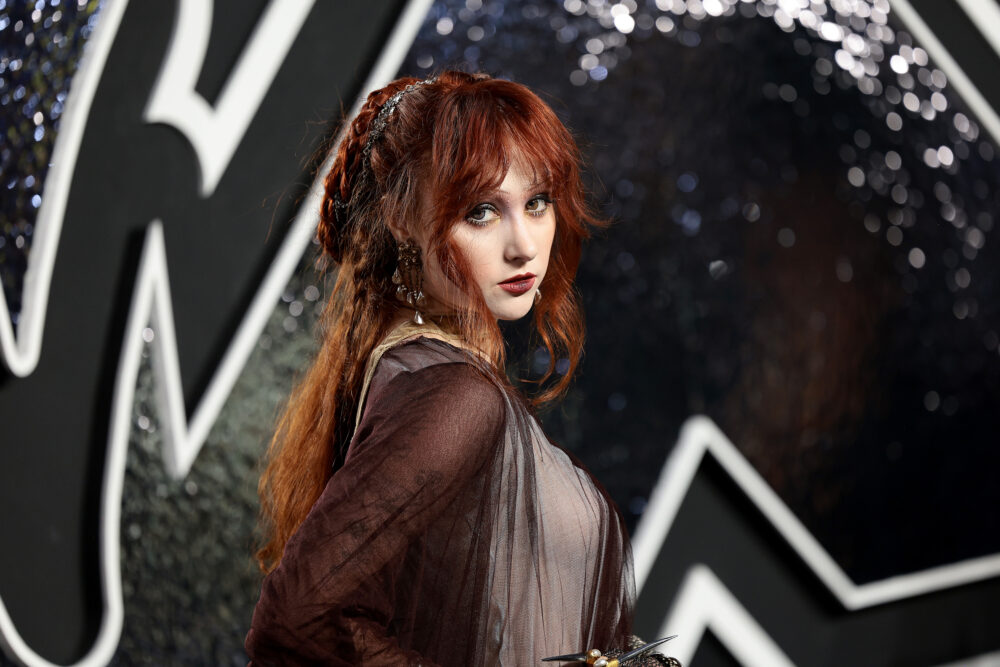Chappell Roan Clarifies Political Views: Endorsement vs. Voting – A Nuanced Perspective
Chappell Roan, a rising pop singer known for her outspoken personality, has recently sparked conversation regarding her political stance, specifically about her voting choices. In a series of social media posts, she clarified that while she will be voting for Kamala Harris, her support does not necessarily mean she fully endorses the vice president or the political party she represents. Roan’s distinction between voting and endorsing sheds light on the complexity of political engagement, particularly for public figures in today’s polarized climate.

The Difference Between Endorsing and Voting
In one of her posts, Roan addressed her followers, explaining that voting and endorsing are two separate actions. She emphasized that while she will be casting her vote for Kamala Harris, she doesn’t feel comfortable endorsing Harris or fully supporting the Democratic Party.
Roan’s statement reflects a broader sentiment shared by many voters who may feel that neither political party fully represents their views. She expressed discomfort with certain transphobic and genocidal policies associated with the left, as well as the well-known issues from the right, such as their stance on marginalized communities.
Criticism and Backlash from Fans
After making her initial remarks, Roan faced backlash from some fans who felt that her refusal to endorse a candidate equated to political apathy or irresponsibility. These critiques led her to further clarify her stance in subsequent posts.
Roan highlighted the importance of critical thinking when engaging with political discourse. She encouraged her followers to question authority and not blindly follow political figures.
Roan’s defense shows her commitment to encouraging voters, especially younger generations, to think deeply about their political decisions rather than simply following endorsements or mainstream narratives.
The Role of Voting in the Current Political System
Despite her criticisms of both parties, Roan acknowledged that voting remains one of the few tools people have to influence change within the current system.
Roan’s message resonates with voters who may feel disillusioned with the political system but still recognize the importance of participating in elections. In her view, voting is a pragmatic choice rather than an enthusiastic endorsement. By urging people to vote, Roan demonstrates that she values civic engagement even in a flawed system.
The Importance of Questioning Political Leaders
Roan also touched on the significance of holding political leaders accountable. While she will be voting for Harris, she expressed frustration with some of the policies that have been implemented under the Democratic Party’s leadership, especially those that she believes have failed to serve marginalized communities, including transgender individuals and those affected by international conflicts, like Palestine.
Her frustration points to a growing movement among progressive voters who feel that while they align with the left on many social justice issues, there are areas where the party has fallen short. Roan’s call for questioning both sides of the political aisle is a reflection of this trend.
Chappell Roan’s Political Activism and Future
As a public figure, Roan understands the weight of her words and the influence she holds over her fan base. However, she made it clear that she refuses to let that pressure dictate her political choices or force her to endorse a candidate.
Roan expressed a desire for more people to think critically about the policies and actions of both parties before casting their votes. Her candid discussions about the flaws of the current political system and her hesitancy to fully endorse any politician indicate that she will continue to engage in political discourse with nuance and thoughtfulness.
The Larger Implications for Celebrity Endorsements
Roan’s stance also raises questions about the role of celebrities in political campaigns. Traditionally, celebrities have been expected to endorse candidates as a way to influence public opinion and voter turnout. However, Roan’s reluctance to endorse Harris suggests that younger celebrities may be moving away from this model.
Her emphasis on the difference between endorsing and voting reflects a broader trend where public figures, particularly those who speak to younger audiences, may prioritize individual choice and critical thinking over traditional party loyalty. Roan’s willingness to challenge the expectations placed on celebrities in the political arena could mark a shift in how public figures engage with politics in the future.
A Call for Thoughtful Voting
In summary, Chappell Roan’s recent statements highlight the tension many voters feel between the necessity of participating in elections and their dissatisfaction with the current political system. Roan’s call for critical thinking, questioning of political leaders, and thoughtful voting reflects a desire for greater accountability from both major parties. While she has clarified that she will vote for Kamala Harris, her message remains one of skepticism and caution, encouraging her fans to think deeply about their own political choices rather than blindly following endorsements.




